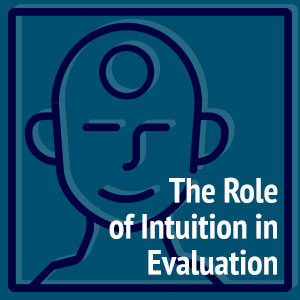 In our last blog post, Evaluation Serving Community Foundations and Donors, we discussed the value of program evaluation to community foundations, especially as a means for demonstrating to donors and other foundation stakeholders that program and project funds are used to achieve the outcomes that donors desire. In this blog post, I’d like to discuss an additional benefit of program evaluations.
In our last blog post, Evaluation Serving Community Foundations and Donors, we discussed the value of program evaluation to community foundations, especially as a means for demonstrating to donors and other foundation stakeholders that program and project funds are used to achieve the outcomes that donors desire. In this blog post, I’d like to discuss an additional benefit of program evaluations.
Program Evaluation for Strengthening Grantee Effectiveness
Because well-designed formative evaluations can provide useful information about how programs are working, especially during programs’ early and intermediate stages, timely and well-designed formative evaluations can play a significant role in helping grantees, i.e., program managers and implementers, with critical information with which to refine and strengthen programming. Community Foundations, therefore, can use formative evaluations to help grantees better achieve their programmatic goals and objectives. By conducting formative evaluations, not just summative evaluations, Community Foundations can ensure that grantees are optimally prepared to achieve the desired program results.
Formative evaluations typically ask the following kinds of questions:
a.. As the project is developed and launched, what are the project’s strengths and vulnerabilities?
b.. In regard to the programs implementation, what’s working and what’s not?
c.. What kinds of implementation problems emerge and how are these being addressed?
d.. What’s happening that wasn’t expected?
e.. How do participants, staff, and stakeholders perceive the program’s initial and mid-cycle effectiveness?
f.. What new ideas are emerging from project implementation that can be tested to strengthen the program’s effectiveness?
g.. How can the program be improved to maximize program outcomes and impacts?
By implementing formative evaluations, Community Foundations can:
a.. Effectively monitor the progress grantees make toward program goals.
b.. Develop grantees’ awareness of, and facility with program evaluation.
c.. Ensure that programs are optimally positioned to achieve intended outcomes.
d.. Develop the indigenous capacities of grantee organizations to monitor and evaluate.
e.. Assure that organizations supported by Community Foundations make their best efforts to refine programming and thus, better serve their stakeholders and service recipients.
Brad Rose Consulting, Inc. has extensive experience designing formative evaluations and program monitoring initiatives. We work with clients in the Community Foundation and Non-Profit sectors to ensure that programs are effectively working towards their goals and making timely, data-informed adjustments to improve program quality. Ultimately we are concerned both with measuring programs’ effects AND with maximizing programs’ effectiveness. We can help Community Foundations to achieve these dual goals. To learn more about our work with community foundations visit our Community service page.



